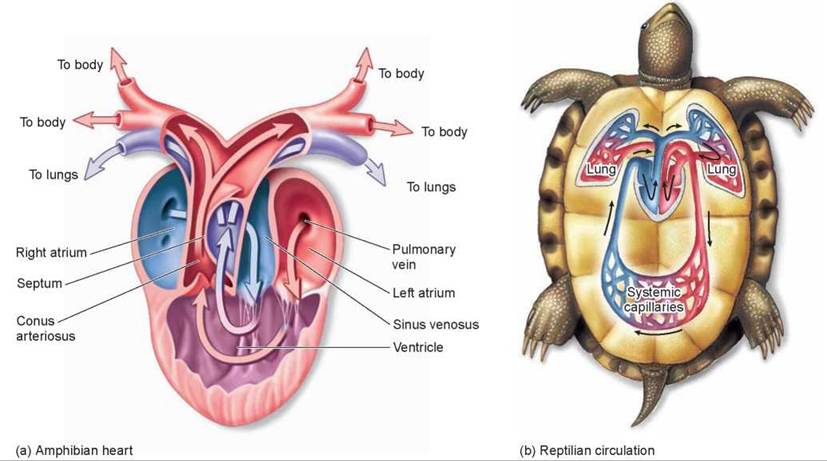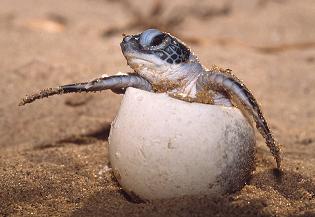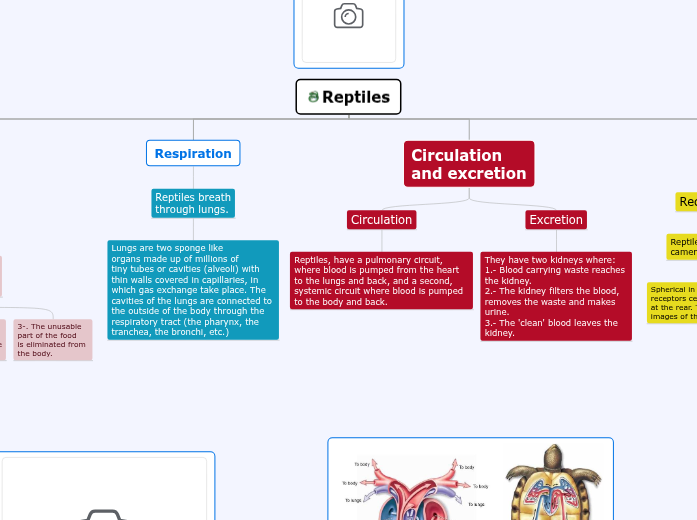Reptiles
Characteristics
Wide variety of shapes, sizes and structures.
They are eukaryotic,
multicellular organisms
they have organs and
systems to carry out their
vital functions.
Their bodies are symmetrical
(they are organised in a way
that their structures are repeated
on either side of an axis or plane).
Nutrition
The process of obtaining
nutrients occurs in two stages:
feeding and digestion.
There are two
types of feeding
(obtaining food)
in reptiles, with tongue
like iguanas and with teeth
like cocodriles.
Reptiles have
digestive system
and it's carried out
in three stages:
1.- The food is
ground up through
mechanical processes,
molecules in nutrients
are broken down trough
2.- The nutrients
are absorbed and
transported to the
cells.
3-. The unusable
part of the food
is eliminated from
the body.
Respiration
Reptiles breath
through lungs.
Lungs are two sponge like
organs made up of millions of
tiny tubes or cavities (alveoli) with
thin walls covered in capillaries, in
which gas exchange take place. The
cavities of the lungs are connected to
the outside of the body through the
respiratory tract (the pharynx, the
tranchea, the bronchi, etc.)
Circulation
and excretion
Circulation
Reptiles, have a pulmonary circuit, where blood is pumped from the heart to the lungs and back, and a second, systemic circuit where blood is pumped to the body and back.
Excretion
They have two kidneys where:
1.- Blood carrying waste reaches
the kidney.
2.- The kidney filters the blood,
removes the waste and makes
urine.
3.- The 'clean' blood leaves the
kidney.
Interaction
Receptors
Reptiles have
camera-type eye.
Spherical in shape, with
receptors cells being located
at the rear. They provide clear
images of the enviroment
Coordination
(The nervous system)
The nervous system is
responsible for receiving
signals sent by the senses,
interpreting them and generating
orders to enable coordinated
responses.
Effectors
Muscle fibres contract
when they recive an
order from the coordination
systems. When they contract,
they generate movement.
Reproduction
Gamete formation
Gametes are formed in the
reproductive system called
sex organs. Male sex organs
are called testes and female
ones are called ovaries.
Fertilisation
Reptiles have internal
fertilisation, this means
that takes place inside
the female reproductive
system.
Development of
zygote
Reptiles are oviparous
animals, this means that
develop inside and egg.







